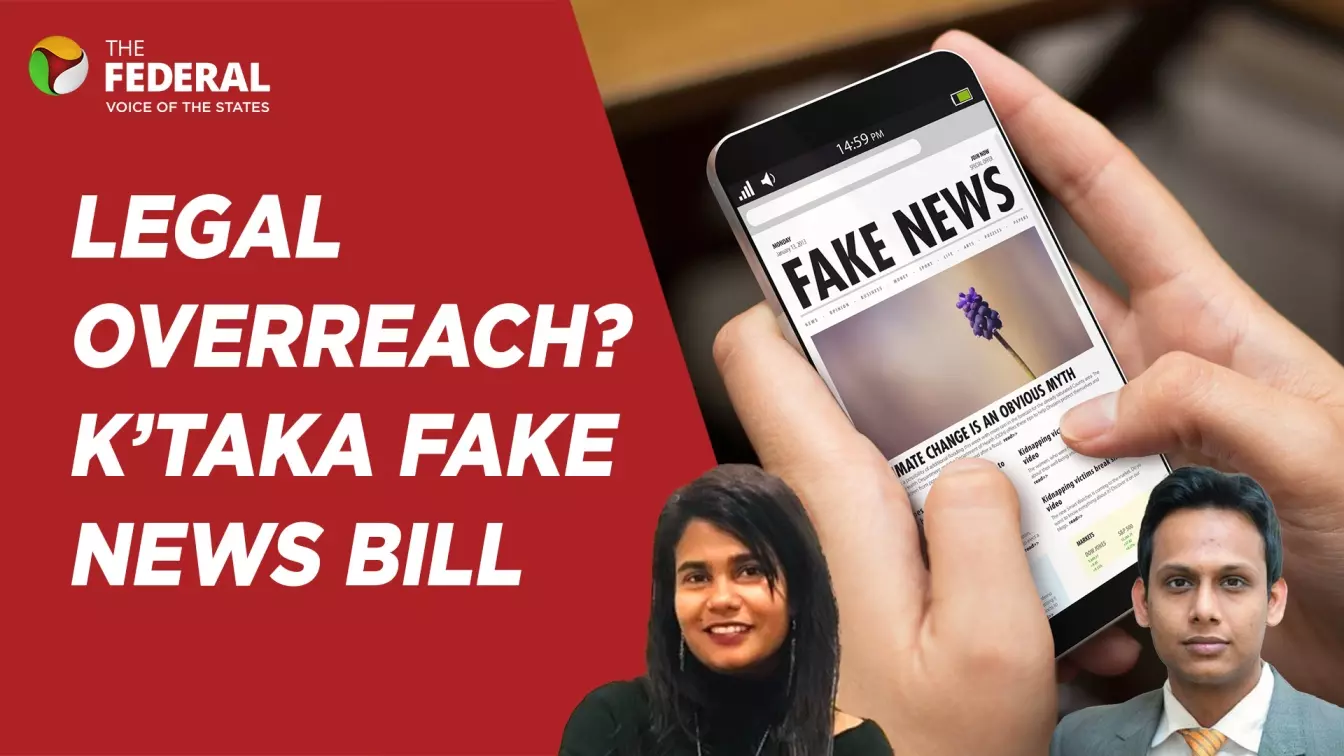
Karnataka’s ‘fake news’ bill sparks censorship fears | Interview
As Karnataka readies a law to jail or fine anyone held guilty of spreading ‘fake news’, internet freedom advocate Apar Gupta explains the constitutional stakes

Karnataka’s new ‘fake news’ bill has sparked fierce debate among digital rights advocates, lawyers, and journalists alike. In an exclusive interview, internet freedom advocate Apar Gupta explains why the bill may set a dangerous precedent for online censorship, potentially undermining fundamental rights and due process.
Does Karnataka’s bill give the state too much power to decide what’s fake?
Yes, I believe this is a constitutional overreach. The bill doesn’t just allow the Karnataka Regulatory Authority to label content as fake or misleading—it empowers the state to initiate criminal prosecution anywhere in India. This goes far beyond content takedown. It sets up a process for police action and prosecution, creating real legal risk for individuals.
For example, the bill penalizes acts that may be deemed anti-feminist or disrespectful to “Sanatana symbols”. I argued in an op-ed that if Dr BR Ambedkar were to burn the Manusmriti today—a symbolic protest—could that act be criminalized under this bill? That’s the level of overreach we’re looking at.
Also read: Meta ends US fact-checking network; will misinformation gain ground?
Under Section 69A of the IT Act, only the Centre can order takedowns. Is Karnataka creating a parallel censorship system?
Exactly. What we’re seeing is a state-level attempt to build its own censorship pipeline. Even though this may stem from a desire to curb disinformation, the method is deeply flawed. Platforms cannot always geo-block content for just Karnataka—they often end up removing it for the whole of India. If other states follow suit, it could fragment the internet.
The IT Act already provides a system: the state sends a request to the Centre’s designated nodal officer, and a committee then decides on blocking content. Karnataka bypasses this process, giving itself unilateral power.
Does the bill provide any appeal or protection for journalists and content creators?
There are procedural safeguards—eventual conviction requires trial—but they are not enough. The injury often occurs well before trial, when police arrest someone for custodial interrogation. And bail? That can only be granted by a special court after hearing the state’s opinion.
The structure is: a state authority flags content, police register a cognizable non-bailable offence, and even before trial, the court can order content to be taken down. This makes it extremely difficult for individuals to defend themselves. Yes, appeals are technically allowed, but the thresholds are extremely high. The balance clearly tilts toward censorship.
Also read: EC launches #ECIFactCheck to counter Opposition’s Bihar SIR claims
So the bill empowers censorship while undermining user rights?
Absolutely. It builds a powerful system to silence dissent and criticism, cloaked in the language of fighting misinformation. But the real risk is to the rights of citizens—the very people the Constitution was designed to protect.
(The content above has been generated using a fine-tuned AI model. To ensure accuracy, quality, and editorial integrity, we employ a Human-In-The-Loop (HITL) process. While AI assists in creating the initial draft, our experienced editorial team carefully reviews, edits, and refines the content before publication. At The Federal, we combine the efficiency of AI with the expertise of human editors to deliver reliable and insightful journalism.)

